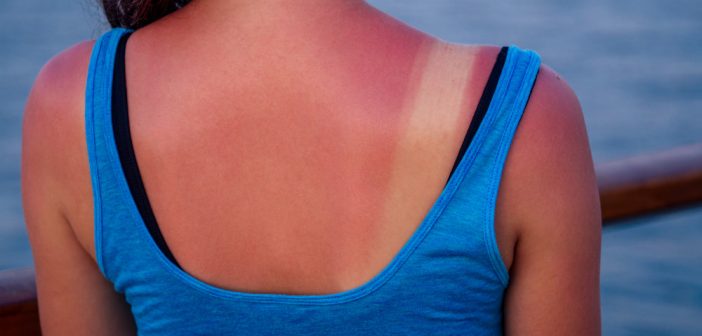It’s always exciting when summer arrives and you can enjoy the warm outdoors again.
Unfortunately, nothing spoils that outdoor fun like a painful sunburn. A sunburn never lets you forget it’s there. The red, painful burn makes wearing clothes uncomfortable, and it gives way to itching, flaky skin.
Sunburns can happen to anyone if a person doesn’t have proper sun protection. In 2010, nearly 40 percent of adults in the United States reported having a sunburn in the last year. Sunburns can range in severity from mild redness to more serious blistering skin.
Here’s what you should keep in mind if you get a sunburn:
Treating a sunburn
Unfortunately, the damage from a sunburn can’t be reversed, but there are things you can do to manage the pain. Be gentle with your skin while it heals, wearing soft, loose fabric that isn’t irritating. Aloe vera and moisturizers can also be soothing. If your skin is especially painful, try taking a non-steroidal anti-inflammatory drug like ibuprofen to reduce inflammation and soreness. If your sunburn is blistering, leave the blisters alone so they can aid in healing. If they pop on their own, keep the area clean.
When to see a doctor
Most sunburns will get better on their own, though you might have a few uncomfortable days. In some cases, the burn might be serious enough to require medical attention. If your blistering skin covers a large area of your body, you might need to be seen by a doctor. You should also watch for signs of dehydration, a high fever, or severe pain. If your sunburn just isn’t getting better, or it appears to be infected, talk to your doctor.
Avoiding the sun
If you have a sunburn, it’s a good idea to get out of the sun as soon as possible and stay out of the sun while it heals. You should also avoid sun damage in the first place because there’s no sunburn treatment that beats not getting burned to begin with. Stay out of the sun during the hottest part of the day, between 10 a.m. and 4 p.m. Cover up with clothes, sunglasses, and a hat to protect as much skin as possible. Use sunscreen with at least SPF 15, and reapply often.
“You don’t have to get a serious sunburn to be at risk for skin cancer,” says Sarah Hilton, a registered nurse. “Even milder sunburns cause damage to your skin, so do your best to protect yourself from ultraviolet rays all year long.”
No matter how much you love being in the sun, nobody enjoys a sunburn. The best treatment is prevention, so take precautions when you go outdoors. If you do get a sunburn, give your skin some TLC to ease the pain.
A version of this article was published by The Daily Herald. It has been republished here with permission.




